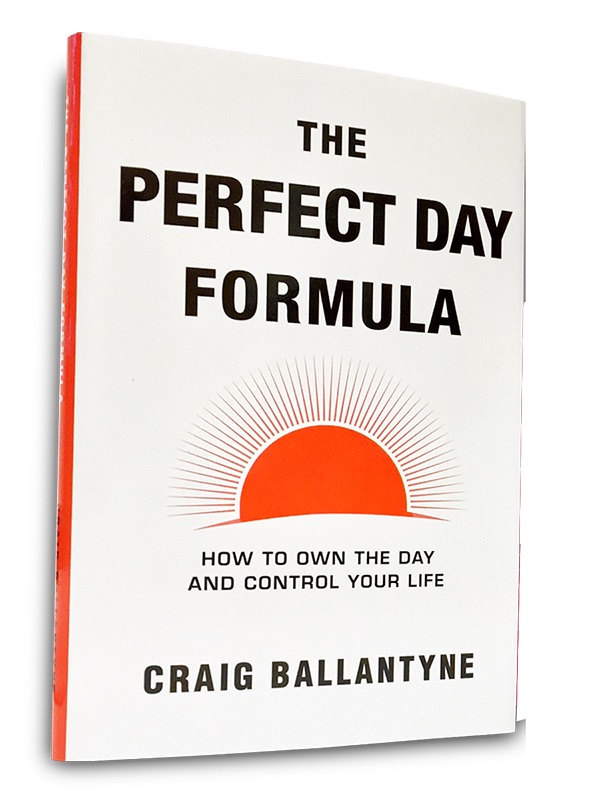5 Ways You Should Treat Yourself Like a Business

Successful businesses are efficient, value-producing machines. They have missions, create detailed investment plans for how to spend their time and revenues, boast a robust network of relationships, and take action every single day to move closer to their end game—whatever their definition of success happens to be.
On a flight from Oakland to Chicago, while reading Richard Branson’s “Losing My Virginity,” I thought about what would happen if I treated myself as a business. What if I lived every day as the president and CEO of RyanWarner.net? How much more productive would I be?
I wrestled with the question for a few days, and ultimately decided to play out the possibility. I’m now three months into managing myself as a business, and have experienced a number of positive benefits:
- I have shifted my focus, time, and energy to things that really “move the needle” in my life.
- I have discovered (and constantly reiterate) a life mission—something that guides every action I take.
- I’ve learned that I’m the only one who will succeed (or fail) in my own life. My butt is on the line, so I make every minute of every day count. I’m driven to make an impact on the world.
How did I actually get here? Surely, you argue, it takes more than a simple paradigm shift or a thought exercise to take such huge strides forward.
It does indeed. But as you can see from the benefits above, the work it takes to create positive change is absolutely worth it. If you’re on board with what a business lens can do to your own life, then start implementing the steps below.
1. Define Your Business Philosophy
If someone were to navigate to Yourname.com and click on the About page, what would they find?
Tim Ferris shone a light on this self-definition recently. On his podcast, Ferriss hosted psychologist Michael Gervais, during which Gervais told a story about how he came to develop his personal philosophy, “Make everyday a living masterpiece.”
Twenty years back, Gervais was asked by his mentor who he was. A simple question, right? But Gervais fumbled. He jumped into hokums about what he liked to do, what he did in the past, and what his goals were. The elderly mentor smiled and said, “Come back to me when you’re ready.”
Young Gervais—the now world-renowned performance psychologist—could not answer this seemingly simple question. But he endeavored to find an answer. What resulted was his personal philosophy.
You should do the same for yourself as a business. Why? Your business philosophy is what continually reminds you what you stand for. A well-crafted philosophy will not leave room for ambiguity or loopholes; it will hold your feet to the fire every day.
Before you move onto the steps below, then, take a few hours and sketch out your own philosophy. What do you stand for? What is your “business”? What are your end goals? These will need tweaking, of course, but it’s important to start now.
To get you started, here’s my “business” philosophy in a nutshell: Ryan Warner will always be grateful for obstacles. He will maintain the discipline needed to attack every task with absolute focus. He will spread love and laughter every day.
As you can see, philosophies are not all about stuff. In fact, the best ones tackle the most important questions of morality and purpose, leaving money to fall where it may. That said…
2. Capitalize on Investments
Investments are focused on how we spend our time and money. The former is the scarcest resource in the world; we should be mindful of this when we commit ourselves to daily tasks. We want to invest only in those things that move the needle in our “business” every day
What would a business do with a hefty helping of time? They would invest labor and research in things that create value for shareholders. Likewise, we should put our time into activities that build us up as individuals and enable us to offer value to our family, friends, coworkers, and the world at large.
Here’s a good example: Spend a Sunday morning analyzing your strengths and weaknesses. Be ruthless about your weaknesses, and really drill into what you want to improve in your life. Do you want to learn how to be a better leader or public speaker? Do you want to be more present for your family? Do you wanted to be more invested in your job? What are your friends, family, and colleagues doing well in these areas that you could learn from?
The second piece of our daily investment is financial. How does a business look at finances? In simple terms, it’s about increasing top-line growth while maintaining a tight bottom line. Incoming dollars are viewed not as income, but as revenue, and revenues are re-invested in the company to increase growth.
Now think of yourself as a money-making business. What sort of revenues are you bringing in? And how will you get the best return on investment for the money you spend?
For example, if you—as a business—have $20 left over in the budget after a light month, would you reinvest in yourself or squander that money on meaningless stuff and empty activities? Would you buy a book or head to the bar and buy a round of beers?
By thinking of yourself as a business, always looking to increase value, your investments will start to align with your philosophy.
3. Nurture Relationships
How important are personal connections and relationships to a business? Very. They make or break a business’ success; without relationships, there are no customers, partners, board members, or staff.
You need relationships in your business. A lone wolf will not make it.
Former UFC champion Frank Shamrock has a strategy for building relationships that he calls “Plus, Minus, and Equal.”
For the Plus, he looks for someone who is more successful than he is (however one might define success). This person is at the level where Frank wants to be at some point. He or she would make a great mentor.
On the flipside, a Minus is someone whom Frank can teach. Teaching not only helps a Minus, but also helps you increase your understanding of the topic(s) you teach. After all, you can’t teach a subject effectively unless you know it inside and out.
An Equal is a peer—someone with whom you can share feedback as you move your “business” closer to success. These shared struggles and success stories build on mutual experiences and inform future decisions for even better outcomes—increasingly value exponentially.
It’s important that every business have a balance of Plus, Minus, and Equal relationships to keep them afloat. Each one enourages development, maturity, and social engagement.
Oh, one last point on relationships. Make an effort to remove negative relationships from your life. (Just b careful you’re not removing Minuses, though!)
4. Maintain Health
Maintaining a healthy lifestyle may seem like a given, but many people ignore it. I love focusing on health for my “business” because it often has the most immediate ROI. Don’t believe me? Hop on an elliptical for 30 minutes, then spend 15 minutes meditating. How do you feel? It’s amazing the amount of energy and focus we gain from working out.
But what’s the business angle here? Well, think of your mind like the CEO of the company and the rest of your body as employees. You want to spend time making sure each part of your body—or “employee”—is healthy so it can work properly, both on its own and in conjunction with other parts of the body.
To make that work, feed your body what it needs—lots of fresh vegetables, lean meats, and limited carbohydrates. Avoid refined sugars and processed foods. Then, keep a regular exercise regimen going; five days a week of 20-30 minutes of cardio and weight-bearing exercise should be plenty. More on that here.
The result: A healthy body—”collaborative workforce”— that is an unbeatable productivity machine.
But don’t neglect the mind. Dedicate time to meditation, reading, and journaling throughout your week. Challenge your mind with new types of learning, like language study, crossword puzzles, or trivia games. These activities keep your mind sharp, ready for whatever life throws at you.
5. Take Action Every Single Day
A CEO doesn’t take weeks off without working on his/her business, and neither should you. Every day is an opportunity to improve the state of your business and a chance to increase the value you deliver to your shareholders.
Entrepreneur Jesse Itzler takes this concept to a whole new level. He calculates the average life expectancy of a Caucasian male and subtracts his age from it. That leaves him with the number of years he likely has left in this world. Seeing that number in black and white makes only one thing matter: The mission to do the most with your life TODAY.
Jason Feifer, editor-in-chief of Entrepreneur Magazine, takes a different approach. He focuses on the hours that comprise a day, and at the end of each hour asks, “What did I just accomplish in the past hour? Would my family be proud of how I lived in the last 60 minutes?”
In both cases, however, the idea is the same; as the old saying goes, “Live your life like there’s no tomorrow.”
There are two parts to this imperative action. The first is your “why”—which is derived from your mission statement. Don’t just act to act; act knowing what you’re doing is a real-life manifestation of your mission statement.
The second is your “how”—derived from your investment strategy. How do you act in relationships, at home, and at work to reflect your commitment of time and money? How are these an accurate reflection of what your mission statement demands?
Don’t let these questions derail you, however. Examine your actions—carefully, but not too long—and act with integrity, confidence, and purpose.
#
Treating yourself as a business has the potential to reframe your personal development and rebrand your identity with a crystal clear “why.” Be thoughtful about crafting your philosophy and mission statement to make this possible; bear these out in your investment decisions; nurture your relationships with these principles at your core; and act like there’s no tomorrow.
Be energized, be focused, be true to yourself and humbly inspired by the possibilities of your life. If you can manage this—as any good business would—you will find success, however you define it.
I sure have.
I’d love to learn what steps you think I’m missing here, so please leave a comment below with your thoughts/additions.
 Need some philosophies to help you get started on the right path? Editor Craig Ballantyne has done the heavy lifting for you, and offers centuries worth of personal growth and development wisdom in his book, “The Perfect Day Formula.” Get your copy for FREE here and start shaping your own mission statement.
Need some philosophies to help you get started on the right path? Editor Craig Ballantyne has done the heavy lifting for you, and offers centuries worth of personal growth and development wisdom in his book, “The Perfect Day Formula.” Get your copy for FREE here and start shaping your own mission statement.
